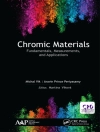The climate change problem can only be effectively dealt with if global anthropogenic greenhouse gas (GHG) emissions can be reduced substantially. Since the emission of such gases is closely related to the economic growth of countries, a critical problem to be addressed by the United Nations Framework Convention on Climate Change (FCCC) is: how will the permissible emission levels be shared between industrialised (ICs) and developing countries (DCs)? The thesis of this book is that the long-term effectiveness of the FCCC runs the risk of a horizontal negotiation deadlock between countries and the risk of vertical standstill within countries if there is little domestic support for the domestic implementation of measures being announced in international negotiations. The research question is: Can one observe trends towards horizontal deadlock and vertical standstill and if yes, how can the treaty design be improved so as to avoid such potential future bottlenecks? The research focuses on the perspectives of domestic actors on the climate convention and related issues in four developing countries: India, Indonesia, Kenya and Brazil. The following key findings emerge from the research: 1. Handicapped negotiating power: The common theme of the foreign policy of DCs is that ICs are responsible for the bulk of the GHG emissions and need to take appropriate domestic action.
J. Gupta
Climate Change Convention and Developing Countries [PDF ebook]
From Conflict to Consensus?
Climate Change Convention and Developing Countries [PDF ebook]
From Conflict to Consensus?
Cumpărați această carte electronică și primiți încă 1 GRATUIT!
Limba Engleză ● Format PDF ● ISBN 9789401589253 ● Editura Springer Netherlands ● Publicat 2013 ● Descărcabil 3 ori ● Valută EUR ● ID 4684170 ● Protecție împotriva copiilor Adobe DRM
Necesită un cititor de ebook capabil de DRM












